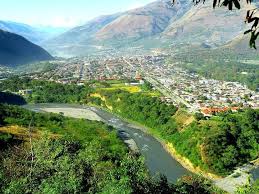DAYDREAM LIVING (SOUTH PERU)
- Rodrio Gaete
- December 20, 2019
- MDR Experiences
- 241

We shared with you what we have lived, listened, and experimented while being with Matsiguengas women in Ivochote chapel -from Quillabamba community- by our sister Ester Rojas Natividad.
I have been working with Matsiguengas women for 13 years in the upper and middle Urumabma, located in La convencion province in Cusco, Peru.
Currently, many Matsinguengas women dream about being “somebody in life” in their community. They aspire to have recognition there. They look for jobs, participate in projects provided by the district and try as hard as they can to improve their family life’s conditions as well as provide their children the opportunity to study.
They still face marginalization, which provokes that they have a passive participation in meetings. They assist assemblies and sometimes they express their opinions. However, many of them are not totally “empowered” in relation to the decision-making process. They are not yet direct agents of transformation since still men have the last word.
There are also old ladies…they are the real transmitting agents of ancestral wisdom, knowledge of medicinal plants, healing rites, birth control, search of human, nature and tastorintsi balance. They are those who we must pay attention to as Church. They are those from whom we can rescue Matsinguenga’s identity. We need them as transmitting agents of wisdom, values, judgment, and new forms of evangelization facing new threats that new generations are living, especially teenagers, who I believe are the most vulnerable group of people in the current context.
Most teenagers after finishing their primary school move to other cities to continue their studies and also to look for better life opportunities. Some of them get acceptable jobs, but unfortunately, some of them fall into human trafficking, which provokes that they are subject to labor slavery (insignificant salaries and work overload). They are victims of human trafficking, which can make them to be exposed to drug addiction or diseases such as HIV. Their future can be easily ruined.
Is then the cost of being “somebody in life” to alienate culturally? To feel ashamed of being a Matsinguenga woman? I dream of seeing these women participating actively in the organizations and being fully recognized by their leadership capacity. I dream of a Church that helps local governments -and that other institutions get involved as well- in this hard work of providing a decent life to them.
Little by little dreams are becoming true because there are already women having a future full of hope. They are their families’ support. They promote themselves and they know how to show their opinions. We hope that the current Amazonian Synod confirms and lay the foundations for our dreams to be fulfill, so we can participate actively in the ecclesiastic project of BEING a Church that opens its heart and arms to shape -among all of us- an Amazonian Church, where God starts over his creation.
Ester Rojas Natividad
Quillabamba
